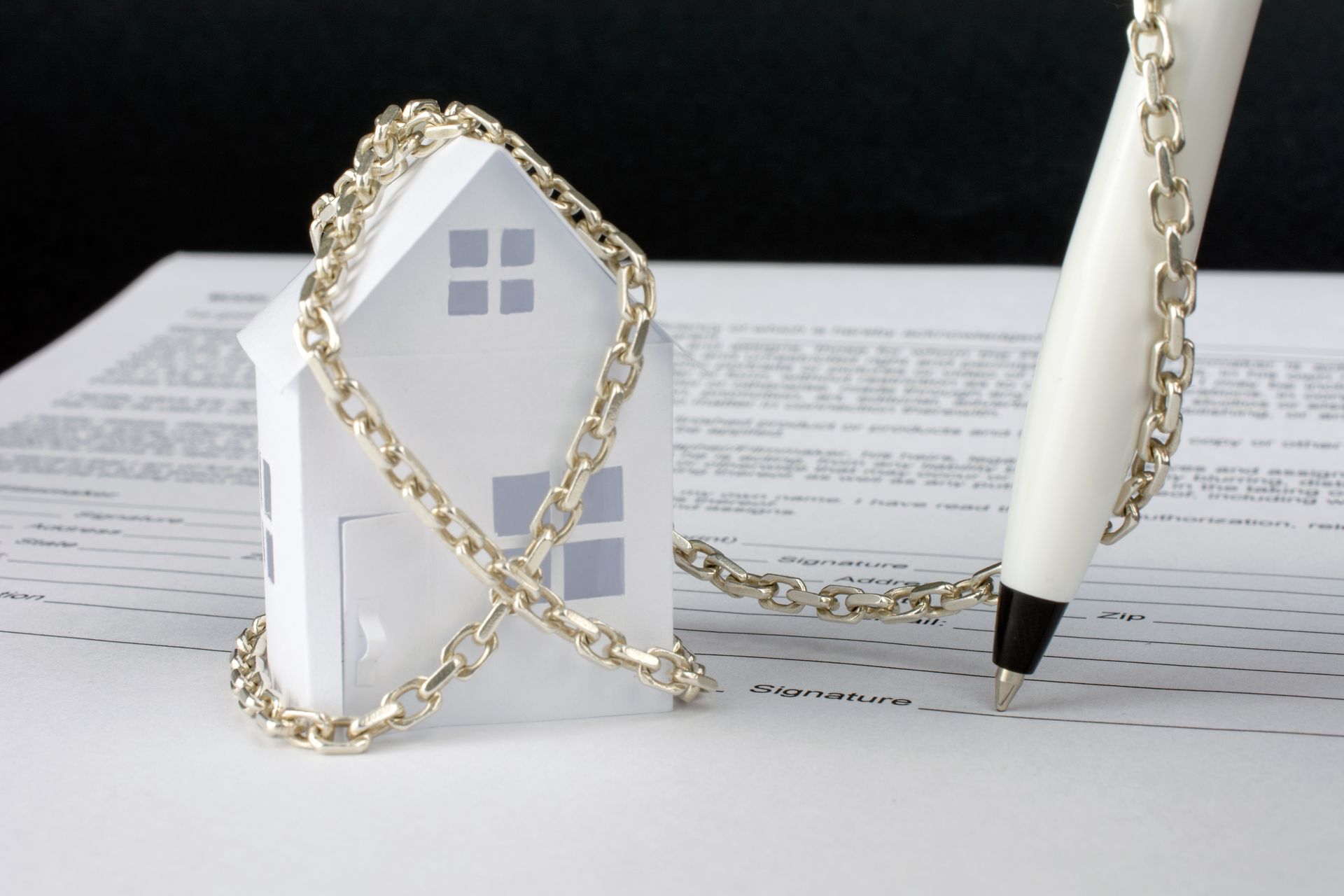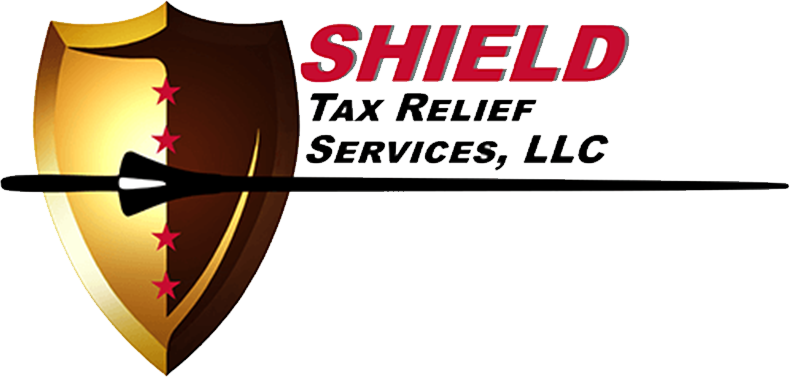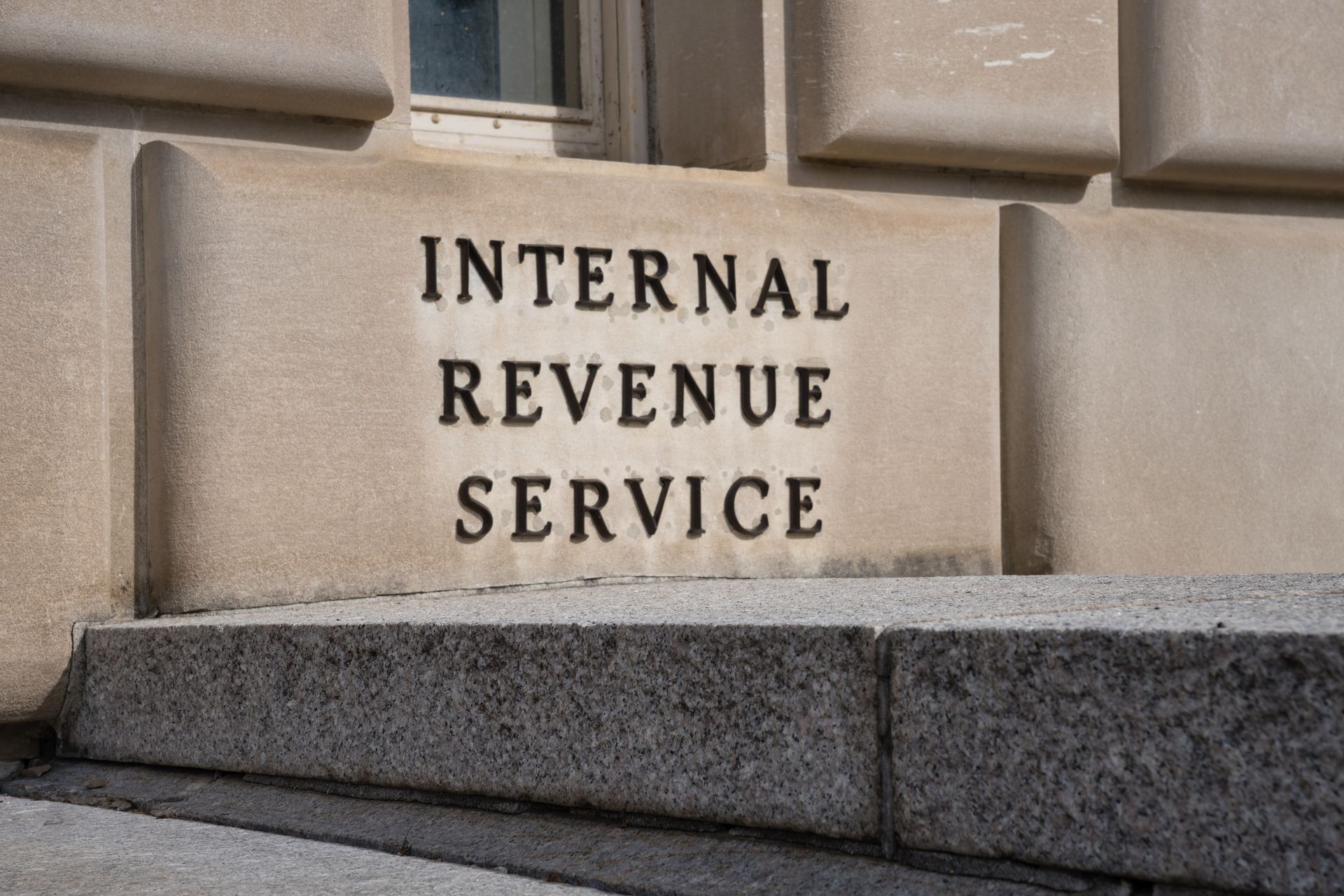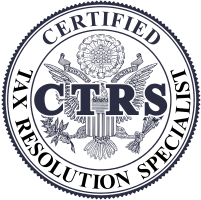Trusted Tax Attorney in Herndon, VA
Jeff Pomerantz • April 27, 2025
This is a subtitle for your new post
If you’re searching for a reliable tax attorney in Herndon, VA, you’re likely facing serious IRS or state tax issues—and you don’t have to face them alone. Jeff Pomerantz, the founder of Shield Tax Relief Services, is here to help Herndon residents find real solutions to their toughest tax problems.
With years of experience and a strong track record helping individuals and small businesses across Northern Virginia, Jeff Pomerantz has become a go-to tax resolution expert in Herndon. His partnership with experienced tax attorneys in the Herndon area ensures clients get comprehensive legal support and expert guidance from start to finish.
Why Choose Shield Tax Relief Services in Herndon?
Jeff Pomerantz understands the challenges local residents face when dealing with the IRS or Virginia Department of Taxation. Whether you’ve received a notice, are dealing with back taxes, or have been hit with a lien or levy, Shield Tax Relief creates a personalized plan to get you relief.
Local Tax Resolution Services in Herndon, VA:
IRS Notices & Letters
– Don’t ignore that IRS letter. Get help understanding and responding the right way.
Tax Lien Removal
– Protect your credit and property by resolving tax liens effectively.
Offer in Compromise
(OIC) – Settle your tax debt for less than what you owe if you qualify.
Installment Agreements
– Set up manageable monthly payments with the IRS or state.
Wage Garnishment Relief
– Stop the IRS from taking your paycheck.
Bank Levy Release
– Get quick action to release frozen bank accounts.
Audit Representation
– Expert defense if you’re being audited by the IRS.
Penalty Abatement
– Reduce or remove penalties for late filings or payments.
Innocent Spouse Relief
– Protection for spouses who are unfairly held liable for a partner’s tax debt.
Business Tax Solutions
– Specialized tax help for Herndon-area businesses.
Your Local Partner for IRS & Virginia Tax Help
Jeff Pomerantz and the Shield Tax Relief team are based right here in Herndon, Virginia. They understand the local tax climate and have helped many individuals across Fairfax County and the surrounding areas achieve lasting resolution.
When you work with Shield Tax Relief, you’re not just getting national-level expertise—you’re working with a local Herndon tax professional who cares about your financial future.

Every IRS letter you receive is part of a process that can lead to serious financial consequences. The first notices may simply explain a balance due or request more information. If you do nothing, the IRS assumes you agree with their findings and moves forward with collection. Over time, this lack of response triggers stronger enforcement measures. The IRS can garnish wages, take funds from your bank account, and file liens against your property — all without needing to take you to court. Shield Tax Relief works to stop this progression before it reaches that point. By acting quickly, we can contact the IRS, address the underlying issue, and negotiate solutions that keep your assets safe. If you’ve received an IRS notice — even one that doesn’t seem urgent — it’s important to act now. Call Shield Tax Relief today to protect your finances and regain control.

If you're feeling crushed by IRS debt, you’ve probably heard about programs that let you “settle for pennies on the dollar.” The truth is a bit more complex — but for the right person, settling for less than you owe is absolutely possible. At Shield Tax, we help clients understand and pursue this path when it makes sense. The key is knowing whether you qualify — and how to build a strong case. What Is an Offer in Compromise? An Offer in Compromise (OIC) is the IRS’s formal program that allows taxpayers to settle their tax debt for less than the full amount. It’s not a loophole — it’s a structured, rules-based process grounded in financial analysis. The IRS only accepts offers when they believe: You cannot pay the full amount through income or assets The offer represents the maximum they’re likely to collect This process is designed for people who are truly struggling, not just unwilling to pay. Who Qualifies? The IRS reviews your entire financial situation, including: Monthly income and expenses Equity in property, vehicles, and savings Future earning potential To qualify, you must be: Current with all required filings Not in active bankruptcy Able to document a legitimate financial hardship If the numbers don’t support your offer, the IRS will reject it. That’s why careful planning is essential. How the Process Works Review – We evaluate your eligibility based on IRS standards Preparation – You submit IRS Form 656 and detailed financial documents Payment – You include an initial payment with your application Review Period – The IRS takes 6–12 months to review, often longer Decision – Your offer is accepted, rejected, or countered During this process, IRS collections are usually paused — which can provide critical breathing room. Common Misconceptions “Anyone can apply and get approved.” Actually, most offers are rejected. A strong case requires strategy and documentation. “It’s just like negotiating.” It’s more like submitting a financial report — and the math has to work. “I don’t have to file taxes if I apply.” You must be current on all filings to even be considered. What If You Don’t Qualify? That’s not the end of the road. Other resolution options include: Installment Agreements (monthly payment plans) Currently Not Collectible status Penalty abatement Appeals if IRS actions seem excessive At Shield Tax, we’ll never recommend an Offer in Compromise unless we believe you truly qualify — and we’ll explore all alternatives if you don’t. Get Honest Answers from Shield Tax You don’t have to wonder what the IRS will do — and you don’t have to figure it out alone. We’ll help you determine if an OIC is your best move, or if another strategy fits better. Contact Shield Tax today. Let’s take the pressure off and find the resolution that fits your life.

When you receive an IRS audit notice, it’s easy to panic — often because of misinformation. Myths about audits cause unnecessary fear and mistakes that could have been avoided. At Shield Tax, we believe the best approach is knowledge: understanding what an audit is, what it isn’t, and how to respond properly. Let’s break down some common misconceptions and facts to help you navigate an audit confidently. Myth #1: An audit means the IRS thinks you committed fraud. Fact: An audit doesn’t necessarily imply fraud or wrongdoing. Many audits are triggered by: Statistical anomalies (your deductions or credits differ from others in your income bracket) Inconsistencies between your return and third-party reports (like W-2s and 1099s) Large charitable contributions, repeated business losses, or substantial home office deductions Random selection as part of IRS compliance efforts Being audited simply means the IRS wants to verify certain information — it’s not an accusation. Myth #2: Audits always involve a scary in-person meeting. Fact: There are three types of IRS audits, and most are conducted by mail: Correspondence audit: The IRS requests documentation by mail for specific items — this is the most common audit type. Office audit: You’re asked to appear at an IRS office with relevant records. Field audit: The most comprehensive type, where an IRS agent visits your home, business, or representative’s office for a detailed review. Understanding your audit type is key to knowing how to prepare. Myth #3: If you can’t find all your records, you’re doomed. Fact: While documentation is essential, missing records don’t automatically result in failure. If you can’t locate specific receipts or statements, a tax professional can often help reconstruct records using reasonable estimates supported by other evidence (e.g., bank statements or logs). The worst thing you can do is panic and ignore the audit — responding properly is always better than inaction. Myth #4: You have to handle it yourself. Fact: You have the right to professional representation at every stage of the audit. An enrolled agent, CPA, or tax attorney can: Communicate directly with the IRS on your behalf Ensure documentation is complete and properly presented Help keep the audit focused on specific issues Protect your rights and advise you on appealing, if needed For more complex audits, professional help can reduce both stress and exposure. Myth #5: Audits always end with you owing more. Fact: Audits can have several outcomes: No change: Your return is accepted as filed. Agreement: You accept proposed adjustments and pay additional tax (plus penalties and interest, if applicable). Disagreement: You dispute the findings, triggering an appeal process. Even when additional tax is assessed, payment arrangements can often be negotiated. Best Practices for Navigating a Tax Audit Beyond busting these myths, here’s what we recommend for successfully managing your audit: Read the notice carefully: Identify what’s being reviewed and what documentation is requested. Respond promptly: Deadlines matter; ignoring an audit notice can escalate the situation unnecessarily. Organize your records: Clear documentation reduces questions and delays. Answer precisely: Only respond to what the IRS asks; volunteering additional information can expand the audit scope. Maintain professionalism: Polite, cooperative conduct makes a big difference in tone and outcome. Prepare for the Future Even after resolving an audit, you can reduce your audit risk going forward by: Keeping all documentation for 3–7 years Reporting all income, including freelance and side jobs Avoiding estimates — use precise, documented numbers Separating business and personal expenses carefully Shield Tax: Here to Help You Through Your Audit An IRS audit doesn’t have to mean chaos, stress, or unfair penalties. With the right approach and professional guidance, most audits can be resolved efficiently. At Shield Tax, we help individuals and businesses prepare for audits, communicate effectively with the IRS, and protect their rights throughout the process. Call us today for a free consultation — let’s help you navigate your audit with confidence and clarity.

When back taxes go unresolved, the IRS has several enforcement tools at its disposal, but one of the most alarming is asset seizure. While wage garnishments and bank levies are common, asset seizure means the IRS can take and sell your physical property to satisfy unpaid debt. If you’ve received notices from the IRS or know you owe taxes, understanding this process can help you protect your assets before the situation spirals out of control. What Is an IRS Asset Seizure? An IRS asset seizure occurs when the IRS takes ownership of your property — not just your bank account or wages, but tangible items such as: Vehicles (cars, trucks, motorcycles, boats) Real estate (homes, rental properties, land) Business equipment and inventory Valuables like jewelry, art, collectibles Investment accounts and cash equivalents Once seized, the IRS can sell this property at auction, often at a discount, to cover the tax debt. When Does the IRS Seize Property? Asset seizure is not a first step. The IRS follows a detailed collection process designed to give taxpayers several chances to resolve their debt before enforcement occurs: Assessment and demand: The IRS formally determines you owe taxes and demands payment. Collection notices: Repeated letters escalate warnings about consequences of nonpayment. Final Notice of Intent to Levy: This letter gives you 30 days to respond before seizure or other enforcement begins. Seizure typically occurs when: The taxpayer ignores IRS notices and correspondence The debt is significant and longstanding The IRS identifies property that can be sold to satisfy the debt Your Rights Before a Seizure Before the IRS can seize property, taxpayers have specific legal rights: Right to written notice: The IRS must send a Final Notice of Intent to Levy. Right to appeal: You have 30 days to request a Collection Due Process (CDP) hearing after receiving this notice. Right to explore alternatives: You can propose payment plans or settlements before enforcement. Ignoring these rights by failing to act is what leads to most asset seizures. How to Stop an IRS Seizure If you’ve received a Final Notice, there are options to stop or avoid seizure, such as: Installment Agreement: Make monthly payments that satisfy IRS requirements and halt collection actions. Offer in Compromise (OIC): If you qualify, settle for less than the total debt. Currently Not Collectible (CNC) status: Demonstrate financial hardship that temporarily stops collection. Appeal: A timely CDP hearing request suspends enforcement while your case is reviewed. Taking action quickly is key — once seized, property may be sold quickly and often below value. Why Time Is Critical The IRS moves quickly when collection escalates. Once property is sold, recovering it is nearly impossible. Acting promptly protects your assets and gives you more options to resolve your debt favorably. The Importance of Professional Help The IRS collection system is complex, and navigating it alone can lead to costly mistakes. A tax resolution expert can: Review your financial situation and IRS account Identify the best resolution option Prepare documentation and communicate directly with the IRS File appeals and negotiate solutions that protect your property Take Action Now — Protect Your Assets and Your Peace of Mind If you’re facing an IRS asset seizure or received a Final Notice of Intent to Levy, it’s time to act. At Shield Tax, we help taxpayers protect their property and resolve IRS debts quickly and effectively. We understand IRS procedures and can intervene to help you avoid seizure while working toward a fair resolution. Contact us today for a free consultation — let us help you safeguard your assets and regain financial control.

If you’ve found yourself owing the IRS more than $10,000, it can feel like you’re in over your head. At this level, the IRS may begin to escalate its collection efforts—fast. That could mean wage garnishment, frozen bank accounts, or even liens against your property. But here’s the critical thing to know: this situation is fixable, and there are proven steps you can take to protect yourself. Step 1: Open Every IRS Letter You Receive IRS notices are often the first sign of a problem—and the first step toward a solution. These letters detail your balance, deadlines, and the consequences of inaction. Once you pass the $10,000 mark, the IRS tends to act more aggressively, so ignoring these notices is not an option. Don’t delay—review them carefully, and respond as needed. Step 2: Request Your IRS Account Transcript Before taking any action, you need to understand the full scope of your debt. Your IRS account transcript will show: Which tax years are involved The total amount owed Any penalties and interest accrued Existing enforcement measures (if any) You can access this information online at IRS.gov. Once you have it, you’ll know exactly what you’re dealing with. Step 3: Know Your Relief Options The IRS offers several programs designed to help taxpayers resolve their debt. These include: Installment Agreements – Monthly payment plans that allow you to pay down the debt over time. Offer in Compromise (OIC) – If you qualify, you can settle your debt for less than the total amount owed based on your ability to pay. Currently Not Collectible (CNC) – If your financial situation makes it impossible to pay, the IRS may temporarily halt collection actions. Penalty Abatement – If you have a valid reason for missing deadlines or payments, the IRS may reduce or remove penalties. Each option has strict criteria, and applying incorrectly can delay resolution or even trigger enforcement. Step 4: Avoid Common Pitfalls People in tax debt often make decisions out of fear—and it can cost them. Here’s what not to do: Don’t pay with high-interest credit cards to “buy time” Don’t ignore letters hoping they’ll stop Don’t apply for programs you don’t fully understand Every move should be based on strategy, not panic. Step 5: Hire a Tax Relief Professional Who Knows the System When your tax debt is over $10,000, the risks are too high to go it alone. A qualified tax relief expert can: Evaluate your financials and recommend the best resolution path Negotiate directly with the IRS on your behalf Help you avoid liens, levies, and garnishments Make sure all filings and deadlines are met accurately If you owe the IRS more than $10,000, Shield Tax Relief Services is ready to help. Led by Jeff Pomerantz, we work closely with individuals and small businesses to resolve tax problems and prevent future issues. Call today for a free consultation and let’s build a strategy that protects your future.

Your Shield Against Financial Uncertainty An unexpected IRS bank levy can disrupt your life and finances. Shield Tax Relief Services, with over 34 years of experience, is here to provide the protection and guidance you need during such times. Understanding the Threat An IRS bank levy is a serious action taken to collect unpaid taxes, resulting in frozen bank accounts and seized funds. With the IRS's enhanced enforcement in 2025, individuals and businesses are at increased risk. Our Protective Services Comprehensive Evaluation: We thoroughly assess your financial situation and tax obligations. Customized Solutions: Our team crafts personalized strategies to address and resolve your tax issues. Ongoing Support: We offer continuous guidance to prevent future levies and maintain financial health. Why Choose Shield Tax Relief Services? Proven Track Record: Decades of successful tax resolution cases. Personalized Attention: We treat each client's situation with the care and specificity it deserves. Local Expertise: Serving Herndon, Ashburn, and surrounding areas with dedicated support. Secure Your Financial Future Don't let an IRS bank levy dictate your financial destiny. Reach out to Shield Tax Relief Services today and let us be your shield against tax-related challenges.

If the IRS sent you a CP501 notice in 2025, it’s because they believe you owe taxes. This is more than just a bill—it’s a signal that your account is under review and collections may be next. While the CP501 isn’t a threat, it is a warning—and ignoring it opens the door to aggressive enforcement actions later. Why the IRS Sent This You likely received a CP501 because: You underpaid on a recent return You filed but didn’t pay the full amount The IRS filed a substitute return on your behalf You missed a payment on an installment plan Whatever the reason, the IRS is now tracking your balance. What This Letter Leads To The CP501 is followed by CP503, then CP504. From there, if you remain unresponsive: Your wages may be garnished Your bank account may be frozen Your property may be liened Your Options Right Now You can: Pay in full (if affordable) Negotiate a payment plan Apply for a hardship delay Submit for an Offer in Compromise Shield Tax Relief Services helps clients stop IRS escalation before it happens. We assess your options, handle IRS communication, and defend your income and assets. Call today for a free consultation and take the first step toward peace of mind.







